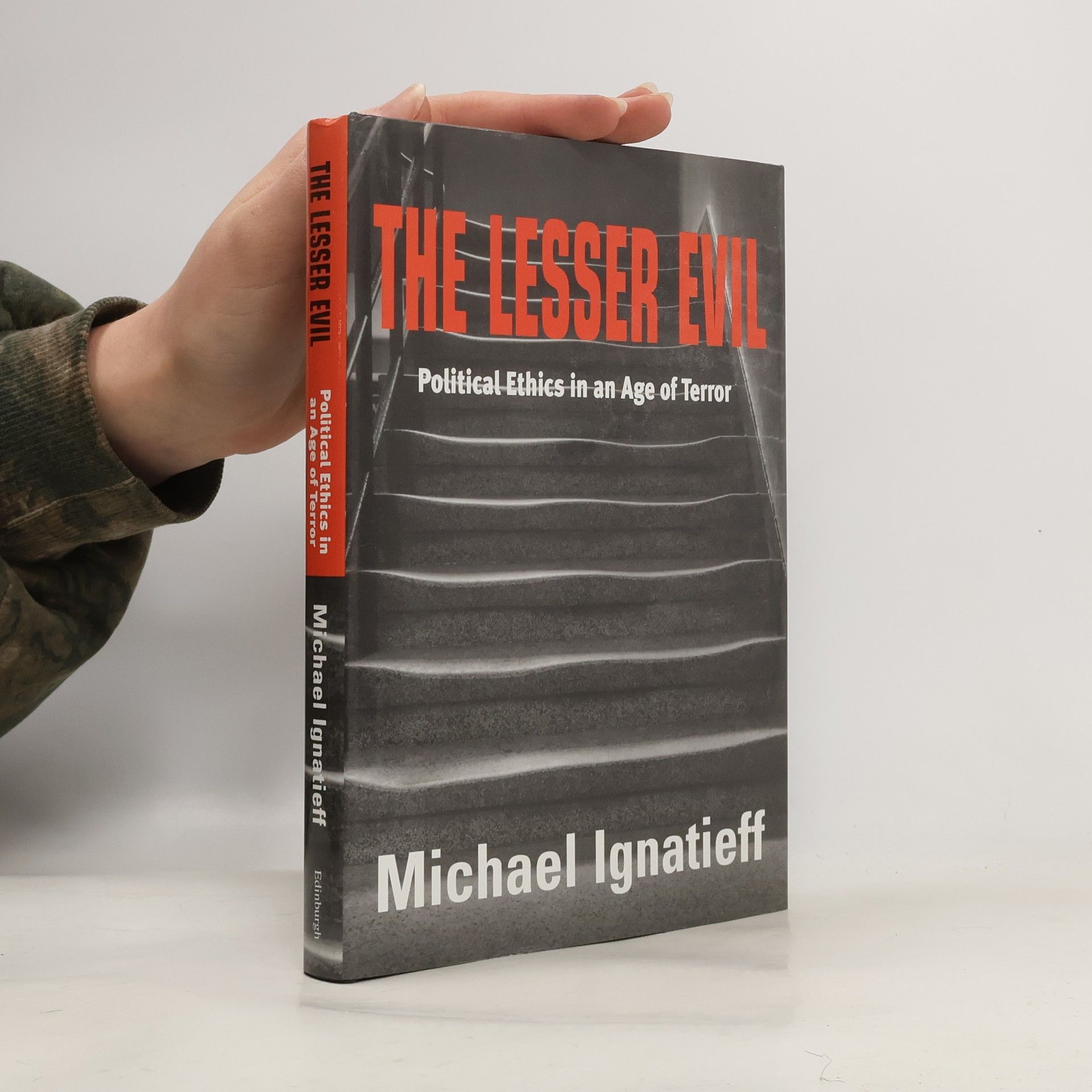Liberties Journal of Culture and Politics is devoted to educating the general public about the history, current trends, and possibilities of culture and politics.
Michael Ignatieff Book order (chronological)
Michael Ignatieff is a Canadian author whose work delves into history and politics. His writing explores complex questions of identity, nationhood, and democracy. Ignatieff's academic background and political experience lend him a unique perspective on the challenges facing the modern world. His works are valued for their depth and insight.







Reissue of an incisive exploration of the many faces of modern nationalism by the esteemed author of On Consolation
The Russian Album takes us back through five generations to 1815. Focusing on his grandparents, Count Paul Ignatieff and Princess Natasha Mestchersky, Ignatieff recreates their lives before and during the Russian Revolution.
O útěše
- 316 pages
- 12 hours of reading
Jak se utěšujeme v době nevíry? V řadě úvah o spisovatelích, umělcích, hudebnících a jejich dílech – od knihy Jób a Žalmů po Gustava Mahlera, Alberta Camuse, Prima Leviho a Václava Havla – ukazuje uznávaný spisovatel a historik Michael Ignatieff, jak se muži a ženy v extrémních situacích napříč časem obraceli jeden k druhému, aby získali naději a odolnost. Kniha O útěše obnovuje okamžiky, kdy velké osobnosti našly odvahu postavit se svému osudu a odhodlání pokračovat beze strachu. Jejich příběhy přenáší do současnosti s přesvědčením, že tyto tradice útěchy můžeme oživit, když čelíme úzkosti a nejistotě našeho rozkolísaného jednadvacátého století.
From renowned intellectual and historian Michael Ignatieff comes a moving portrait of artists, writers, politicians, emperors, and poets overcoming tragedy and crisis an ancient tradition of consolation which will resonate with readers in our turbulent times.
In Defense of Open Society
- 224 pages
- 8 hours of reading
An impassioned defense of open society, academic and media freedom, and human rights. George Soros -- universally known for his philanthropy, progressive politics, and investment success--has been under sustained attack from the far right, nationalists, and anti-Semites in the United States and around the world because of his commitment to open society and liberal democracy. In this brilliant and spirited book, Soros brings together a vital collection of his writings, some never previously published. They deal with a wide range of important and timely topics: the dangers that the instruments of control produced by artificial intelligence and machine learning pose to open societies; what Soros calls his "political philanthropy"; his founding of the Central European University, one of the world's foremost defender of academic freedom; his philosophy; his boom/bust theory of financial markets and its policy implications; and what he calls the tragedy of the European Union. Soros's forceful affirmation of freedom, democracy, the rule of law, human rights, social justice, and social responsibility as a universal idea is a clarion call-to-arms for the ideals of open society.
Müssen wir Terror mit Terror bekämpfen, Mord mit Mord und Folter mit Folter? Müssen wir zivile Freiheiten opfern, um die öffentliche Sicherheit zu erhalten? Michael Ignatieff, linksliberaler Intellektueller und Befürworter des Irak-Krieges, legt mit diesem Buch eine theoretische Begründung seiner politischen Positionen vor: Angesichts der Gefahr verheerender terroristischer Angriffe vertritt der „liberale Falke“ die These, daß eine politische Ethik ständig abwägen müsse, welche „kleineren Übel“ zu rechtfertigen seien, um „größere Übel“ zu verhindern. Dies bedeutet konkret, die Frage zuzulassen, unter welchen Umständen die Aufhebung von Grundrechten, härtere Verhörmethoden (unter Ausschluß der Folter) und vorbeugende Kriege vertretbar seien. Ignatieff argumentiert für die Suche nach einem Mittelweg: Man müsse die Balance finden zwischen Freiheit und Sicherheit, zwischen Wahrung der Grundrechte von Individuen und dem Schutz der gesellschaftlichen Mehrheit. Gleichzeitig weist Ignatieff darauf hin, daß dieser Balanceakt immer auch die Gefahr einer Selbstbeschädigung der Demokratie birgt, der es bewußt entgegenzuwirken gilt.
American exceptionalism and human rights
- 392 pages
- 14 hours of reading
The 2003 invasion and occupation of Iraq raised a critical question in global politics: does the United States operate within the framework of international law? This work examines America's adherence to human rights standards compared to other Western nations. Featuring essays from eleven prominent experts in international relations and law, it highlights the distinctiveness of the U.S. approach to human rights. Michael Ignatieff's introduction outlines three forms of exceptionalism: exemptionalism (supporting treaties while seeking exemptions for Americans), double standards (criticizing others for ignoring international human rights findings while overlooking similar issues in the U.S.), and legal isolationism (American judges often disregarding foreign legal precedents). Contributors build on Ignatieff's insights to analyze specific aspects of exceptionalism, such as capital punishment and free speech, and investigate its social, cultural, and institutional foundations. Most essays are published here for the first time and have been revised from a year-long lecture series at Harvard's John F. Kennedy School of Government. Notable contributors include Stanley Hoffmann, Paul Kahn, Harold Koh, and Cass Sunstein.




